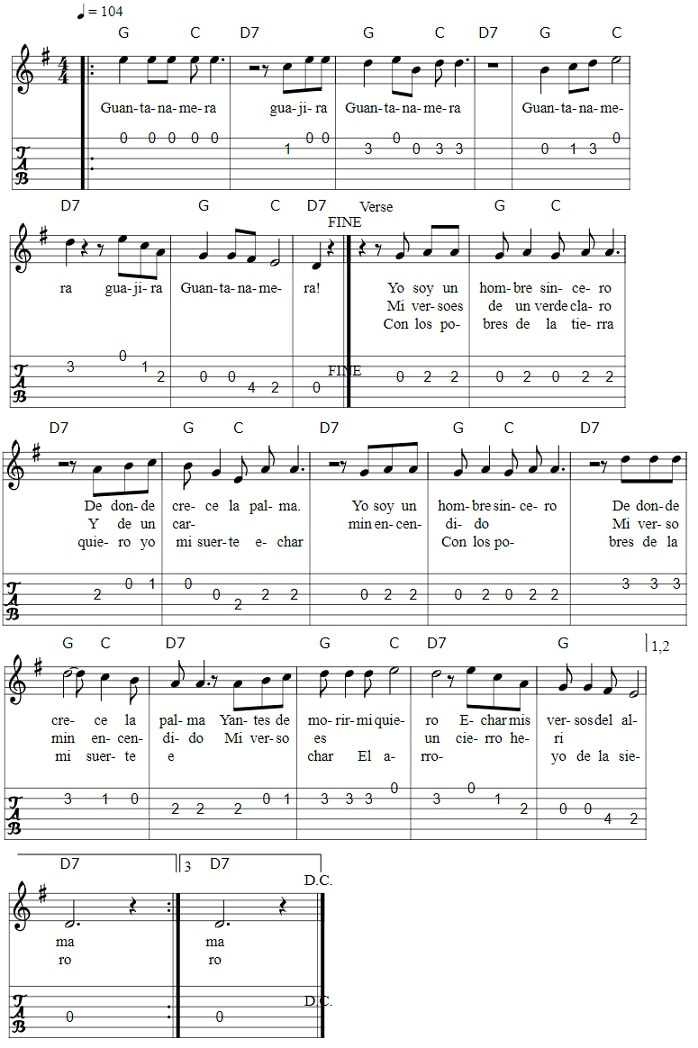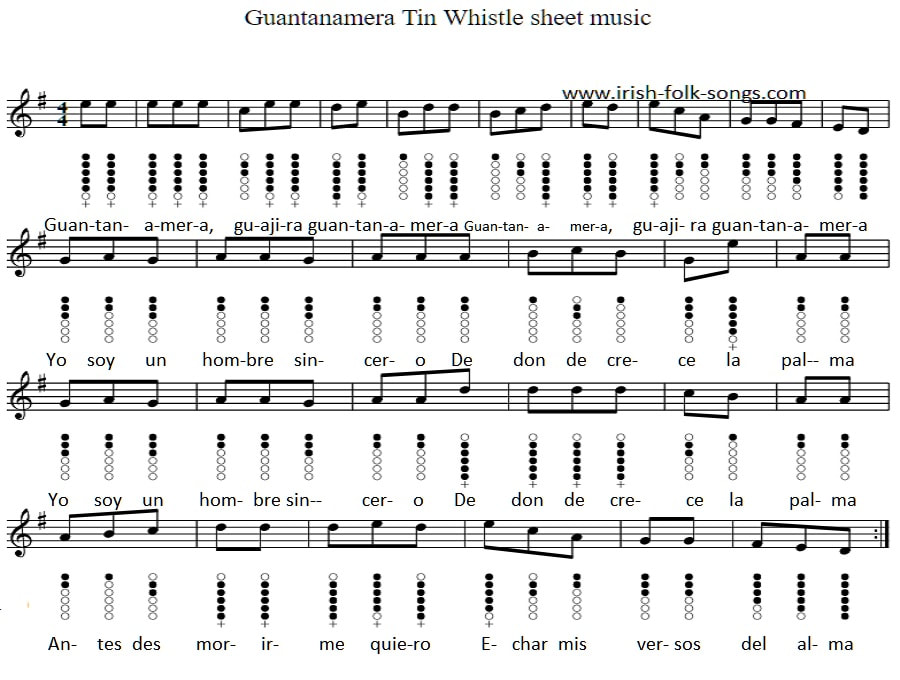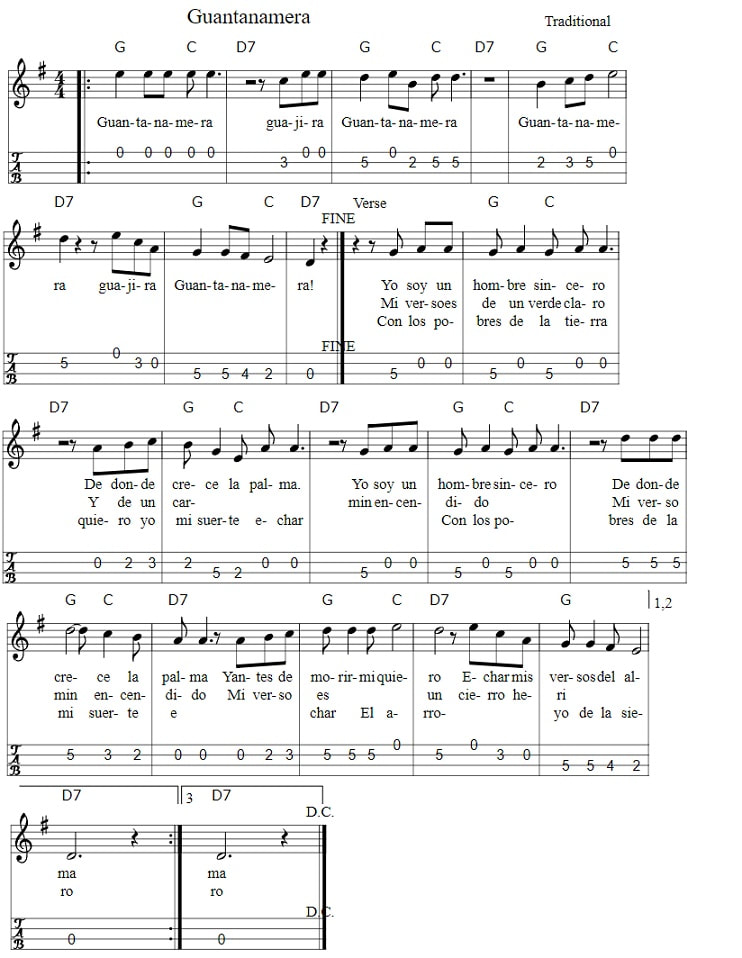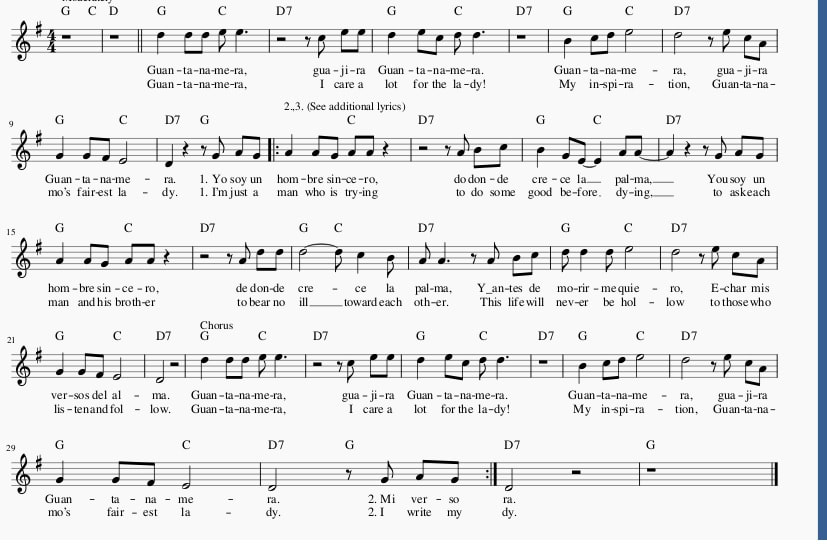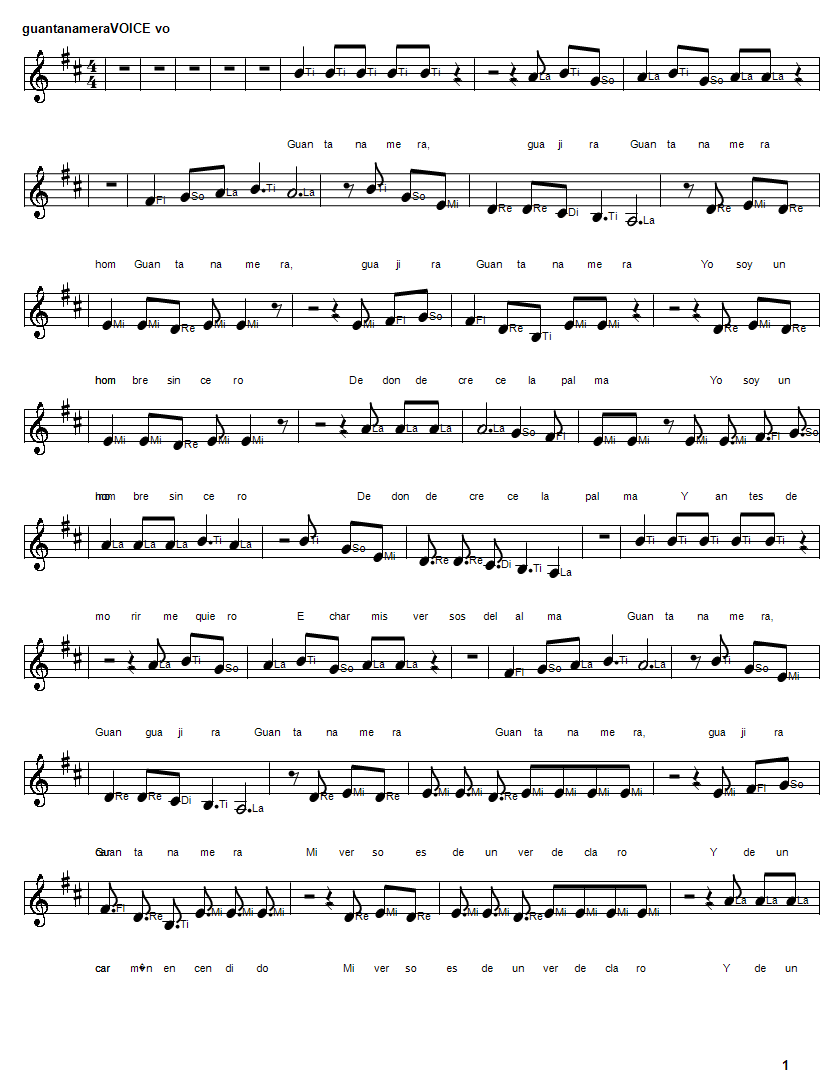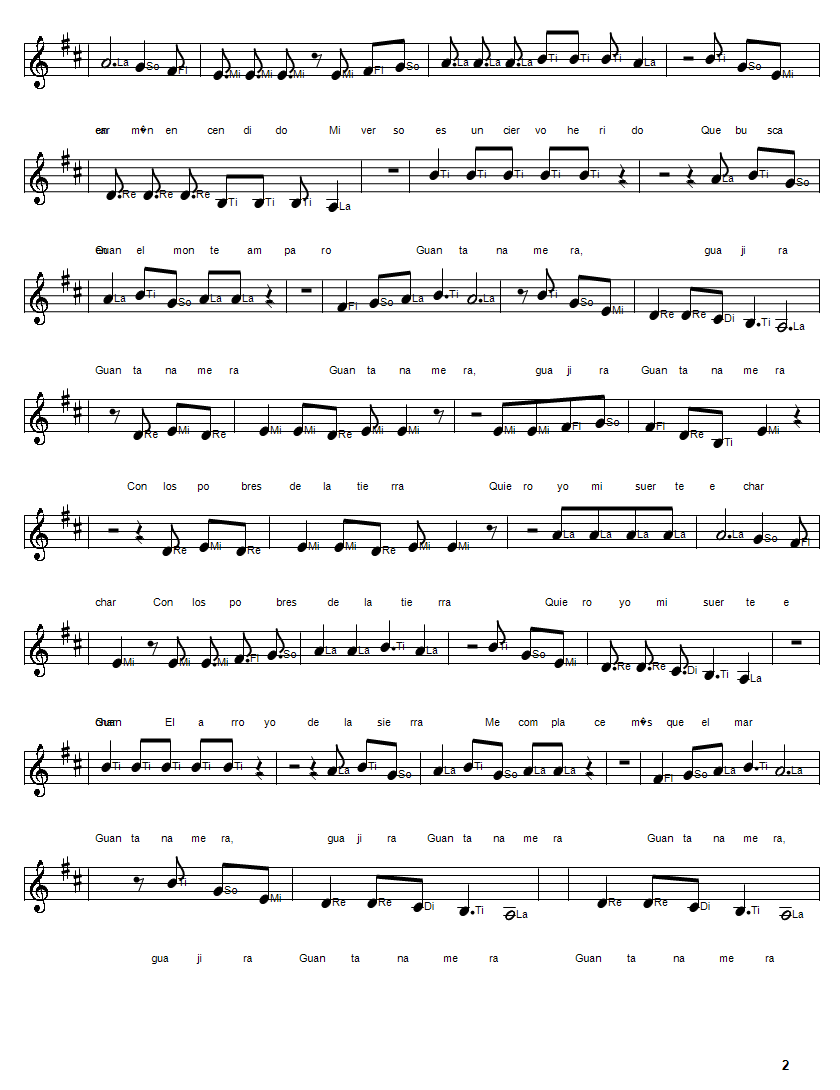Guantanamera tin whistle notes
Guantanamera tin whistle sheet music notes in the key of G. You can play this tune on any tin whistle.Guantanamera sheet music solfege [ Do re mi ] notes in D Major are now here, the full songs with lyrics. Guantanamera guitar chords and tab included plus the mandolin sheet music.
Introduction
The Guantanamera song is a popular Cuban folk song that has become an international sensation since its release in the 1960s. It is a symbol of Cuban culture and has been covered by numerous artists from different countries and in various languages. The song has a rich history and has been a source of inspiration for many people. In this thesis, we will examine the origins of the Guantanamera song, its impact on Cuban culture, and its global influence.
Origins of the Guantanamera Song
The origins of the Guantanamera song can be traced back to the 19th century in Cuba. The song is based on a poem written by Cuban poet and nationalist, Jose Marti, in 1892. The poem, titled 'Versos Sencillos' or 'Simple Verses,' was a tribute to a peasant girl from Guantánamo, a province in eastern Cuba. The poem depicts the simple and humble life of the girl and praises her beauty and charm.
The poem was later set to music by Cuban composer, Joseito Fernández, in the 1920s. Fernández was inspired by the poem and composed a melody that captured the essence of Marti's words. The song became popular among the Cuban people, especially in the eastern region of the country, where it originated.
Impact on Cuban Culture
The Guantanamera song has had a significant impact on Cuban culture since its creation. It has become an integral part of Cuban music, and its popularity has never waned. The song is often referred to as the unofficial national anthem of Cuba due to its widespread popularity and representation of Cuban identity.
The song has also been used as a symbol of resistance and revolution in Cuba. During the Cuban Revolution in the 1950s, the song became a rallying cry for the revolutionaries, and it was often sung during political rallies and demonstrations. The lyrics of the song, which praise the simple and humble life of the Cuban people, resonated with the revolutionary ideals of the time.
Global Influence
The Guantanamera song has gone beyond the borders of Cuba and has become a global phenomenon. In the 1960s, American singer and activist, Pete Seeger, popularized the song in the United States. Seeger's version of the song became a hit and introduced the song to a wider audience.
Since then, the Guantanamera song has been covered by numerous artists from around the world, including Celia Cruz, Julio Iglesias, and The Sandpipers. It has been translated into multiple languages, including English, French, and Japanese, making it accessible to people from different cultures.
The song's global influence can also be seen in its use in popular culture. It has been featured in movies, television shows, and commercials, further solidifying its place in popular culture. The song's catchy melody and uplifting lyrics have made it a favorite for many people, regardless of their cultural background.
Conclusion
The Guantanamera song is more than just a catchy tune; it is a symbol of Cuban culture and a representation of its people's resilience and spirit. Its origins can be traced back to the 19th century, and it has since become an integral part of Cuban music and culture. Its global influence has made it a beloved song around the world, and it continues to inspire and unite people from different cultures. The Guantanamera song is a testament to the power of music and its ability to transcend borders and bring people together.
The Guantanamera song is a popular Cuban folk song that has become an international sensation since its release in the 1960s. It is a symbol of Cuban culture and has been covered by numerous artists from different countries and in various languages. The song has a rich history and has been a source of inspiration for many people. In this thesis, we will examine the origins of the Guantanamera song, its impact on Cuban culture, and its global influence.
Origins of the Guantanamera Song
The origins of the Guantanamera song can be traced back to the 19th century in Cuba. The song is based on a poem written by Cuban poet and nationalist, Jose Marti, in 1892. The poem, titled 'Versos Sencillos' or 'Simple Verses,' was a tribute to a peasant girl from Guantánamo, a province in eastern Cuba. The poem depicts the simple and humble life of the girl and praises her beauty and charm.
The poem was later set to music by Cuban composer, Joseito Fernández, in the 1920s. Fernández was inspired by the poem and composed a melody that captured the essence of Marti's words. The song became popular among the Cuban people, especially in the eastern region of the country, where it originated.
Impact on Cuban Culture
The Guantanamera song has had a significant impact on Cuban culture since its creation. It has become an integral part of Cuban music, and its popularity has never waned. The song is often referred to as the unofficial national anthem of Cuba due to its widespread popularity and representation of Cuban identity.
The song has also been used as a symbol of resistance and revolution in Cuba. During the Cuban Revolution in the 1950s, the song became a rallying cry for the revolutionaries, and it was often sung during political rallies and demonstrations. The lyrics of the song, which praise the simple and humble life of the Cuban people, resonated with the revolutionary ideals of the time.
Global Influence
The Guantanamera song has gone beyond the borders of Cuba and has become a global phenomenon. In the 1960s, American singer and activist, Pete Seeger, popularized the song in the United States. Seeger's version of the song became a hit and introduced the song to a wider audience.
Since then, the Guantanamera song has been covered by numerous artists from around the world, including Celia Cruz, Julio Iglesias, and The Sandpipers. It has been translated into multiple languages, including English, French, and Japanese, making it accessible to people from different cultures.
The song's global influence can also be seen in its use in popular culture. It has been featured in movies, television shows, and commercials, further solidifying its place in popular culture. The song's catchy melody and uplifting lyrics have made it a favorite for many people, regardless of their cultural background.
Conclusion
The Guantanamera song is more than just a catchy tune; it is a symbol of Cuban culture and a representation of its people's resilience and spirit. Its origins can be traced back to the 19th century, and it has since become an integral part of Cuban music and culture. Its global influence has made it a beloved song around the world, and it continues to inspire and unite people from different cultures. The Guantanamera song is a testament to the power of music and its ability to transcend borders and bring people together.
Guantanamera mandolin sheet music tab
Guantanamera sheet music solfege notes in D Major
